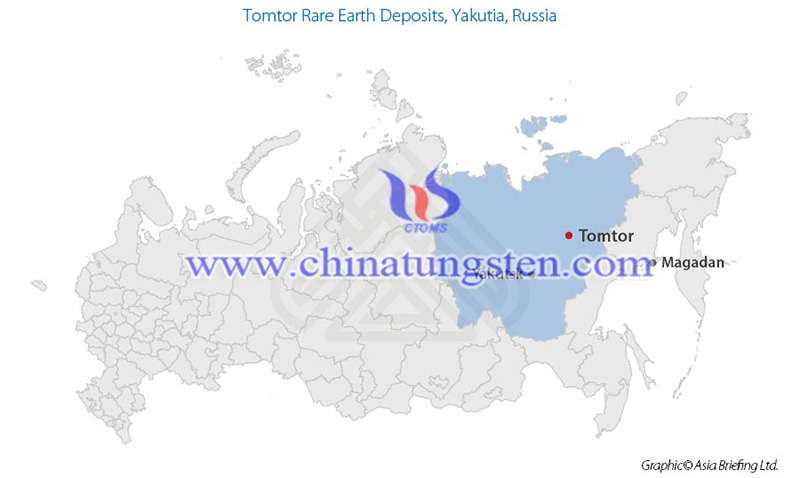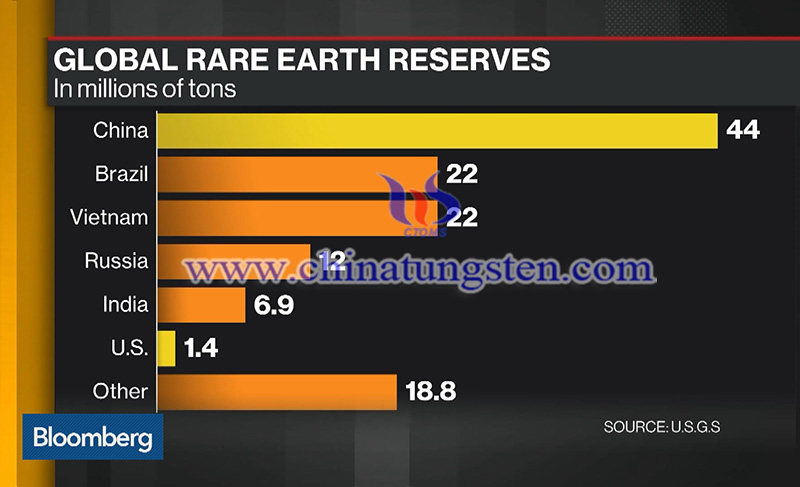Russia Depends on Imports of Rare Earths and Other Metals
- Details
- Category: Tungsten's News
- Published on Thursday, 24 June 2021 21:38
Over the past three years, Russia has imported more than one-third of strategic types of minerals including more than 60% rare earths, and such dependence on foreign supplies carries risks for national security. The Russian steel and defense industries rely heavily on the supply of these strategic metals and rare earth metals. According to the report of Russian news agency RIA Novosti.

The main suppliers of these strategic minerals to Russia are Ukraine, Kazakhstan, Chile, China, Mongolia, and South Africa. According to the report, Ukraine supplied 82.9% of titanium, 51.2% of zirconium, and 70% of kaolin; Kazakhstan supplied 87% of chromium and 73.2% of copper; 70.7% of lithium was imported from Chile; 83.3% of bauxite is from China; Mongolia supplied 85.2% of fluorspar.
Currently, the government does not take sufficient measures to substitute imports of scarce types of minerals and strategic mineral raw materials, and the existing measures are ineffective.

In addition, the Federal Court of Auditors pointed out that the country is lagging in the development and use of raw material concentration and processing technologies. The science center that the country inherited from the Soviet Union also disappeared. As well as the production of rare earth metals and ferrous metals such as zirconium, manganese, and chromium has been reduced or completely terminated.
"Faced with current sanctions and potential new restrictions that restrict Russian access to modern technology, dependence on certain strategic minerals and rare earth minerals poses risks to various sectors of the country’s economy," the Federal Court of Auditors warned. The report said: "In this regard, mineral and raw material bases are facing the risk of losing their competitiveness against the world's major commodity countries."

- Rare Earth Manufacturer & Supplier, Chinatungsten Online: www.chinatungsten.com
- Tungsten News & Prices of China Tungsten Industry Association: www.ctia.com.cn
- Molybdenum News & Price: news.molybdenum.com.cn
- Tel.: 86 592 5129696; Fax: 86 592 5129797; Email: sales@chinatungsten.com



 sales@chinatungsten.com
sales@chinatungsten.com